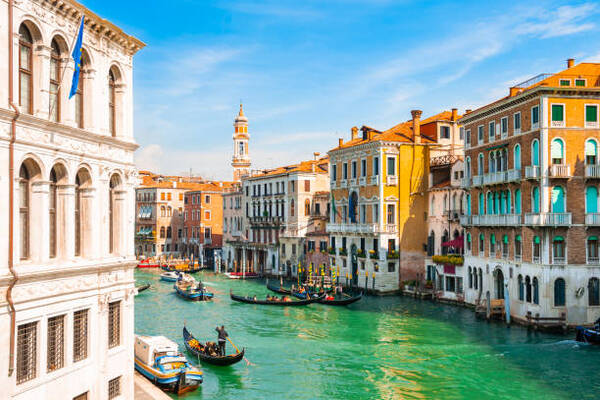Published on
August 15, 2025
Europe is increasingly implementing strict fines to address disruptive tourist behavior, with the aim of preserving local communities, promoting respectful travel, and protecting the environment. These measures are being introduced across several popular destinations, such as Spain, Italy, Greece, Turkey, and Portugal, where fines are now being levied for actions like public drunkenness, inappropriate dress, and even taking seashells from beaches. Authorities argue that these regulations are necessary to curb growing concerns from residents about the negative impacts of tourism, including overcrowding, environmental damage, and disrespectful behavior in public spaces. By enforcing these rules, local governments hope to encourage more responsible and considerate tourism, ensuring that the beauty and integrity of their destinations are maintained for both visitors and locals alike.
Multiple European countries are cracking down on disruptive tourist behavior by imposing hefty fines aimed at promoting responsible travel and preserving local communities and environments. These regulations target a variety of behaviors, such as public drunkenness, inappropriate attire, and actions that harm the natural landscape, like removing seashells or littering. The fines, which can range from hundreds to thousands of euros, are designed to discourage disrespectful tourist practices and protect both residents and the local environment. While some tourists may find these measures intrusive, authorities assert that the rules are necessary for maintaining the quality of life in popular travel destinations.
In popular tourist spots like Turkey’s Antalya, Spain’s Balearic Islands, and Portugal’s Albufeira, fines are becoming more common. For example, in Antalya, tourists can face a €62 fine for actions such as unbuckling seatbelts or standing up before the plane has come to a complete stop. This fine is a part of broader efforts to ensure safety and proper behavior during travel. The Balearic Islands, which include Mallorca and Ibiza, have imposed a much larger fine of up to €3,000 for public drinking. Meanwhile, in Albufeira, wearing swimwear outside designated beach areas can lead to fines of up to €1,500, reflecting a strong push to maintain the city’s public image and encourage respectful tourist behavior. In Venice, one of Italy’s most iconic destinations, tourists can be fined €350 for swimming in the canals, a popular but dangerous activity that can damage the historic waterway.
Authorities are emphasizing that these rules aim to protect both residents and responsible tourists who respect local customs and the environment. Local governments are actively promoting these measures, often through campaigns that seek to educate visitors about the importance of respecting cultural norms and public spaces. One example is Malaga’s “Improve Your Stay” initiative, which encourages tourists to avoid behaviors like littering, making excessive noise, and recklessly riding e-scooters. Penalties in Malaga can reach up to €750 for these offenses, further highlighting the commitment to maintaining a respectful and sustainable tourism experience.
Albufeira, in Portugal, also enforces stricter rules with bans on public nudity, urinating in public, and abandoning shopping carts. Police patrol nightlife areas to ensure tourists adhere to the local regulations. These measures aim to ensure that the town remains pleasant for both locals and tourists, minimizing the disruptive behaviors that often arise in high-traffic areas.
The range of offenses covered by these fines is expanding, with new rules being introduced across many European countries. For instance, in Spain, Greece, Italy, France, and Portugal, driving while wearing flip-flops can result in fines up to €300, a fine that targets the potential dangers of improper footwear while driving. In Greece, tourists who remove seashells from beaches can face fines as high as €1,000. In France, smoking on specific public beaches is now subject to a €90 penalty, a move designed to protect the cleanliness of the beach and minimize environmental damage caused by cigarette litter. In Italy’s Cinque Terre, hikers who wear inappropriate footwear, such as sandals or high heels, can be fined up to €2,500 for not adhering to safety regulations meant to protect both the environment and personal safety.
Proponents of these measures argue that they are necessary due to increasing frustrations among residents who feel that the uncontrolled behavior of tourists has negatively impacted their communities. As tourism continues to grow, local residents often bear the brunt of behaviors such as overcrowding, noise pollution, and environmental degradation. The fines are viewed as an effective way to address these concerns and promote responsible tourism practices that align with the values and needs of the local population.
While the threat of fines may deter some tourists from engaging in disruptive behaviors, experts emphasize that long-lasting change will require more than just enforcement. It will require better education about the environmental and social impacts of tourism, clearer expectations for both locals and visitors, and improved communication between governments and travelers. Some argue that these fines should be seen as part of a broader strategy to create a more sustainable and respectful tourism industry.
The full impact of these new regulations remains to be seen, and much will depend on how effectively they are enforced and how tourists respond. However, there are signs that authorities are serious about ensuring compliance. Increased police presence and surveillance in popular tourist areas, along with heightened media campaigns, suggest that Europe is committed to ensuring that tourism continues to be a positive force for both travelers and local communities.
Europe’s message to visitors is clear: enjoy the stunning beaches, historic cities, and cultural landmarks, but do so in a way that respects the local customs, environment, and the people who call these places home.
